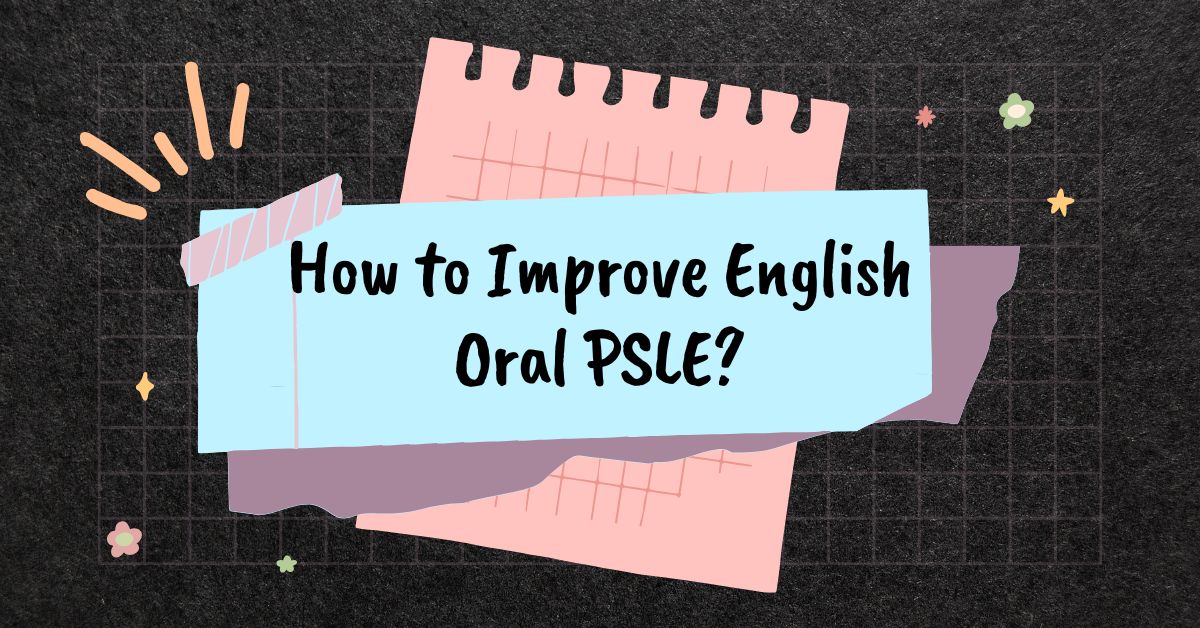The PSLE English Oral Exam is a crucial part of your child’s Primary School Leaving Examination in Singapore. It accounts for 15% of the overall English grade, and yet, many students overlook its importance until it’s too late. Oral communication is more than just reading and speaking. It’s about clear articulation, confidence, and expressing ideas fluently.
Whether your child is naturally talkative or more reserved, with the right guidance and consistent practice, any student can excel in the PSLE English Oral exam.
In this blog, we’ll break down:
- What the PSLE English Oral exam includes
- Common challenges students face
- Effective techniques to improve English oral skills
- How Explico can support your child’s oral exam journey
Understanding the PSLE English Oral Exam Format
The PSLE English Oral exam consists of two main components:
Reading Aloud (10 marks)
Students read a short passage clearly, fluently, and with appropriate expression and pronunciation.
Stimulus-Based Conversation (20 marks)
Students view a picture or scenario and respond to questions, giving personal opinions and experiences related to the topic.
To do well, students need to demonstrate:
- Clear pronunciation and pacing
- Accurate intonation and expression
- Confidence in delivering thoughts
- Ability to relate to the topic and answer with elaboration
Common Challenges Faced by Students
Even high-performing students may struggle with oral exams due to:
- Stage fright or nervousness
- Limited vocabulary to express thoughts clearly
- Lack of exposure to real-world conversations
- Monotonous tone or flat reading without expression
- Difficulty relating the stimulus to personal experience
If these sound familiar, don’t worry. These challenges can be overcome with the right strategies and regular practice.
How to Improve English Oral PSLE: Proven Strategies?
1. Practice Reading Aloud Every Day
Daily reading aloud improves pronunciation, fluency, and expression. Choose age-appropriate books, newspapers, or past-year oral passages. Focus on:
- Pacing (not too fast or slow)
- Emphasizing punctuation
- Varying tone with the emotion or context
Tip: Record your child’s reading and play it back. This helps identify areas to improve.
2. Expand Vocabulary Through Everyday Exposure
A broad vocabulary makes it easier to describe ideas and situations during conversation. Try:
- Reading books and newspapers together
- Watching English news or educational shows
- Creating a vocabulary journal with new words and example sentences
3. Use the “PEEL” Technique in Conversation
For stimulus-based conversation, students often struggle to elaborate. Teach them the PEEL structure:
Point – State the answer clearly
Example – Give a real-life example
Explanation – Explain why it matters
Link – Connect it back to the topic
Example:
Q: Do you think students should help with chores at home?
A: Yes, because it teaches responsibility (Point). For example, I help my parents fold clothes every weekend (Example). It shows that I care about the family and builds discipline (Explanation). So I believe it’s important for students to contribute at home (Link).
4. Simulate Real Oral Exams
The best way to prepare is to mimic exam conditions:
- Use past-year PSLE oral questions
- Time each component (Reading: 1 min prep, 1 min read | Conversation: 5 min)
- Record and review answers together
This reduces nervousness and helps your child get comfortable thinking and speaking on the spot.
5. Give Constructive Feedback, Not Criticism
Avoid saying “That was wrong.” Instead, say:
“Let’s try saying it with more emotion.”
“Can you tell me more about why you felt that way?”
“Try using this new word we learned yesterday.”
Encouraging feedback builds confidence, which is key in oral exams.
Why Choose Explico for English Oral PSLE Preparation?
At Explico, we recognise that each student learns in a unique way. Our online tuition platform offers:
- Interactive oral practice sessions with expert tutors
- AI-driven performance tracking to identify speaking strengths and gaps
- One-on-one feedback to boost pronunciation, vocabulary, and fluency
- Real-time simulations of PSLE oral exams
Unlike traditional tuition, Explico’s platform allows flexible learning – so your child can practice anytime, from anywhere in Singapore.
English Oral PSLE Checklist
Here’s a simple checklist to keep track of your child’s oral prep:
- Read aloud for 10–15 minutes daily
- Practice 2–3 stimulus-based questions each week
- Maintain a vocabulary journal
- Watch and discuss English media regularly
- Simulate exam conditions monthly
- Record answers and review for improvement
- Get feedback from a qualified English tutor
Final Thoughts
The PSLE English Oral exam isn’t just about speaking well. It’s about thinking clearly, expressing confidently, and responding naturally. With structured practice and the right guidance, your child can transform their oral skills and score higher in their exams.
At Explico, we’re committed to helping every child find their voice and speak with purpose.
Ready to Help Your Child Master English Oral PSLE?
Book a free trial session with one of our English tutors today at Explico.sg and start building your child’s confidence, one conversation at a time.


